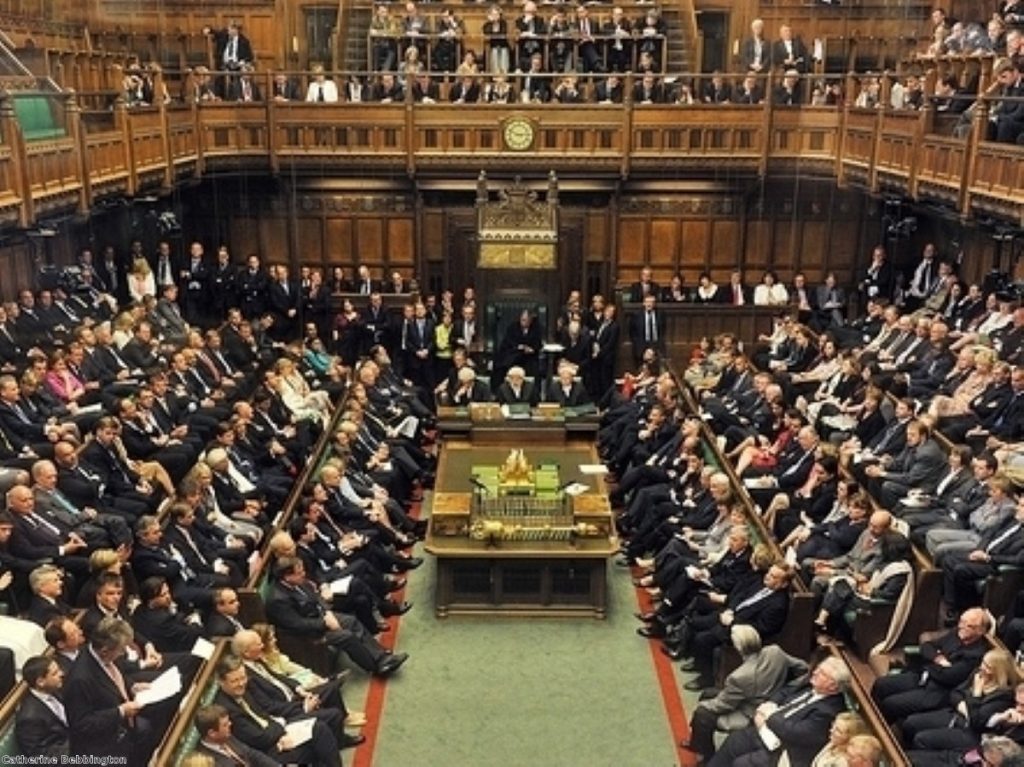PMQs sketch: Putting their Eds together
This was one of the more boisterous prime minister’s questions, but I couldn’t concentrate on the hurricane raging around the Commons chamber. In the eye of the storm, oblivious of everything, the two Eds were enjoying the cosiest of tete-a-tetes.
The leader of the opposition and his new shadow chancellor gave a magnificent display of unity this lunchtime. Caroline Flint, sitting on the other side of Ed Miliband, barely exchanged a word with her leader. Instead Miliband’s sole focus was on the man sitting to his left: a man who, until last Thursday evening, should have been Alan Johnson. His unexpected resignation meant Miliband’s new left-hand-man is none other than Ed Balls.
The Smirking Gun, as I secretly call Balls, had spent much of last summer trying to pick off Miliband during the Labour leadership campaign. The pair have never been the easiest of fits. Heaven forbid what would happen if their compatibility was assessed by a political dating website. Which is why they had to work so hard, in their first frontbench appearance together, to appear the picture of harmony and put any lingering awkwardness behind them.


There is still a lot of scope for the latter. After all, as Cameron acidly asked: “If it was such a good choice appointing the shadow chancellor, why didn’t he do so in the first place?” Balls’ face was a picture of tortured impassivity. There was not a flicker of the emotions burning within. Instead, he only redoubled his efforts to be seen as Miliband’s new best shadow chancellor forever.
Balls aimed himself at the government yesterday after it emerged that the economy had shrunk at the end of last year. Economies are meant to grow, so Miliband was firm favourite before this exchange. He did his job, more or less. “If you don’t have growth, you’ll never halve the deficit,” he roared. This was punchy and well-made. “When we left office, the economy was growing!” This was punchy, but ramshackle. David Cameron came back quickly by calling the theory of a “golden inheritance” – he was interrupted by guffawing Tories – “laughable”.
Miliband concentrated all six of his questions on the economy, but his most revealing language came from his body, not his rhetoric. He was devoted to the utterings of Balls, who had jabbered to him ad nauseam beforehand. Miliband seemed happier than usual to goad the Tories; perhaps he was emboldened by the miserable economic news. As the wall of scorn from the government’s MPs rushed back at the pair it seemed to break on an invisible forcefield. Balls and Miliband, cosily protected from all around, whispered and nudged each other, utterly unperturbed.
They were shaking heads in unison as the half-hour progressed. I began to suspect they were doing it automatically. So it was with a keen sense of anticipation that I awaited their response to a question asking Cameron’s approval for the Holocaust memorial trust. Miliband and Balls, thankfully, nodded in unison.
It was only towards the end of the session that Balls began to break away from the script. His composure was disturbed as he chit-chatted away to Miliband. “I see the shadow chancellor nodding opposite,” Cameron observed. Balls hadn’t the faintest idea what the prime minister was talking about, but sat up to take notice as quickly as he could without losing face. As he hadn’t been listening he didn’t have a clue what was going on. So he hit upon the perfect compromise: nodding sceptically.
Then came an unfortunate question from a Labour backbencher who had got mixed up with her economic figures. “If the former shadow chancellor’s primer has gone missing, perhaps she could get hold of it,” Cameron suggested. Here came the highlight of the session, the best facial expression seen in the Commons for – well, hours. Balls furrowed his brows, his lower lip stuck out stubbornly like a small child about to throw a tantrum. If reports do emerge of frictions with Miliband, this is the face I shall imagine Balls pulling.

